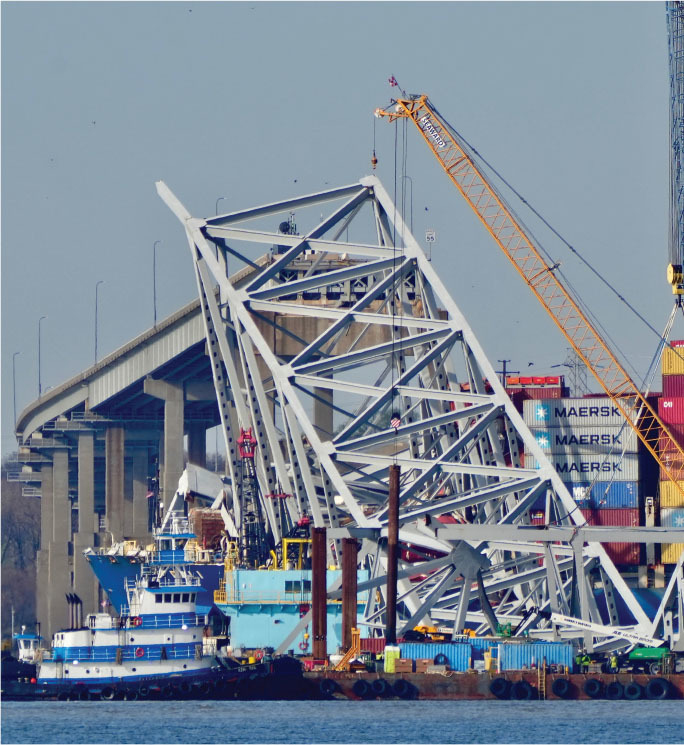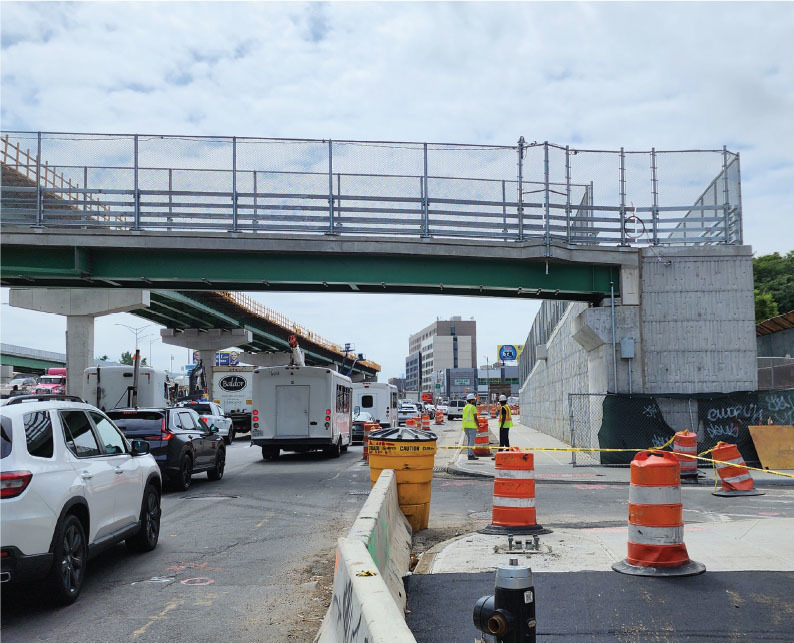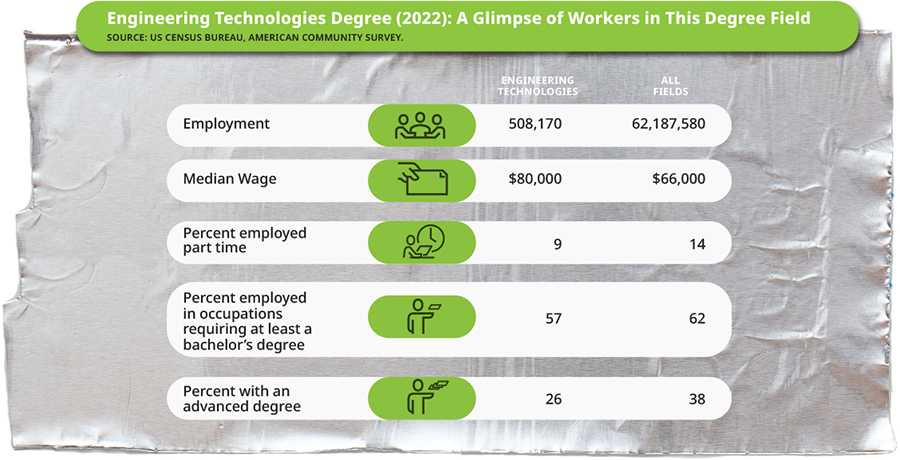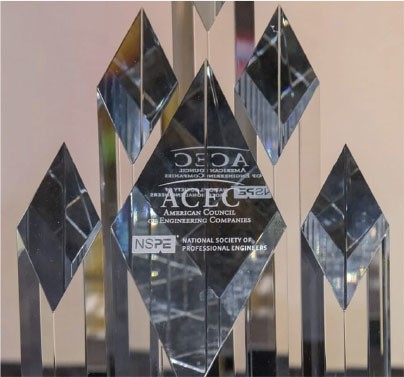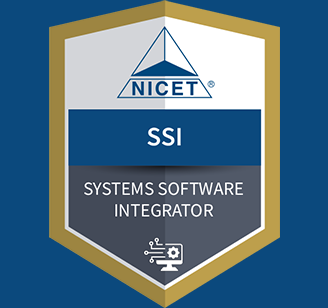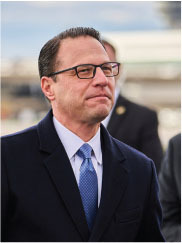May/June 2020
PE Report
State Connection
Alaska
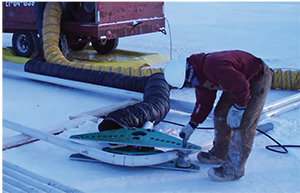
ASPE member Ed Yarmak, P.E., was featured in a December article in the Washington Post that examined the challenges of oil production in Alaska brought on by rising temperatures and thawing permafrost. Yarmak, chief engineer for Artic Foundations, installs systems that draw heat from the permafrost to keep it firm enough to support oil production equipment. According to the article, “His projects for ConocoPhillips are twice as big as the ones he did two decades ago.”
Arizona
Two bills have received a great deal of attention from the engineering community. Supported by ASPE, SB 1298 would update the definition of engineering practice with model law language provided by the National Council of Examiners for Engineering and Surveying. It would also define “Professional Engineer” for the first time in the state.
If enacted, SB 1274 would change the makeup of the Board of Technical Registration. As introduced, the bill would add six public members and cut industry representation to four from the current five: engineer, architect, landscape architect, alarm installer, and home inspector. ASPE is seeking solutions to the imbalance.
California
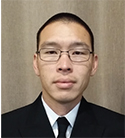
NSPE-CA member Lt. Cmdr. Garrett Chun, P.E., was named as the US Department of Interior National Park Service 2020 Federal Engineer of the Year. The award honors the best and brightest engineers employed at federal agencies. Chun is the design and construction branch chief at Yosemite National Park. He was recognized as a top 10 finalist for NSPE’s 2020 Federal Engineer of the Year.
Florida
With reduced traffic throughout the state due to the stay-at-home order to control the spread of Covid-19, FDOT is expediting $2.1 billion in projects. Projects include the Howard Frankland Bridge in Tampa, Southern Boulevard in Palm Beach County, I-95/I-395 Interchange in Miami-Dade County, and Sand Lake Road/I-Drive in Orlando.
Guam

Two GSPE members, Thomas Camacho, P.E., and Elizabeth Gayle, P.E., are doing their part to mentor young people.  Camacho, a member of the University of Guam School of Engineering Advisory Committee, is involved in the university’s Upward Bound Program for economically and educationally disadvantaged high school students. Gayle has run the Guam MATHCOUNTS program for more than 20 years, since its inception. She also promotes engineering to middle and high school students at public and private schools.
Camacho, a member of the University of Guam School of Engineering Advisory Committee, is involved in the university’s Upward Bound Program for economically and educationally disadvantaged high school students. Gayle has run the Guam MATHCOUNTS program for more than 20 years, since its inception. She also promotes engineering to middle and high school students at public and private schools.
Idaho
ISPE President Joseph Canning, P.E., testified during a legislative committee hearing about concerns that Governor Brad Little’s proposal of universal occupational licensure could lower the bar for licensing engineers. Canning emphasized that licensure mobility is important but ensuring that Idahoans are protected from the potentially dangerous practice of unqualified individuals or businesses should be the top priority. ISPE continues to track the issue.
Louisiana
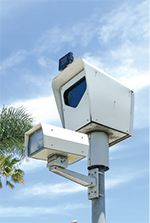
Efforts to renew a Baton Rouge red light camera operations contract has come with some controversy over a firm unlicensed to practice engineering in the state. Vera Mobility, formerly known as American Traffic Solutions, operates 24 red light cameras in 16 intersections in Baton Rouge. The city’s previous professional services contract with the firm specified that installation drawings be stamped by a civil engineer licensed in Louisiana, according to an article in The Advocate on November 19. State law requires firms that practice engineering to be licensed, but Vera Mobility isn’t.
Maine
MSPE, partnering with the University of Maine Advanced Manufacturing Center, held its 16th annual educational symposium on March 6 in Orono. Approximately 70 licensed professional engineers earned six professional development hours during the event. Presentations covered additive manufacturing of metals, advanced solid waste and recycling, the Ferland Engineering Education Design Center, the Mathematical Foundation of Artificial Intelligence, the solar interconnection process, and photo-voltaic development.
Massachusetts

Tufts University in Medford is offering a first-of-its-kind graduate program: a three-semester MS in offshore wind energy engineering. The program will reside within Tufts’ department of civil and environmental engineering.
Minnesota
Minnesota has become the latest jurisdiction to move forward with allowing early taking of the PE exam. The state licensing board will allow applicants to take the PE exam before gaining four years of professional experience. Applicants will still be required to complete all education, examination, and experience requirements before being granted a PE license.
North Dakota

NDSPE chapters recently presented major awards for top engineering projects in the state. Chapter 3 presented the 2020 Project of the Year Award to the Bismarck Municipal Airport for the reconstruction of an 8,794-foot-long runway. Chapter 4 and the Fargo-Moorhead Engineers Club presented the Outstanding Engineering Design Award for the reconstruction of a main arterial roadway that begins in downtown West Fargo, crosses I-94, and extends through the heart of West Fargo’s residential neighborhoods.
Puerto Rico
United Technologies Corporation and the National Academy Foundation have partnered to expand NAF Academies of Engineering into Puerto Rico. The academies will boost STEM programs for underresourced public high schools with a $3 million funding commitment over three years.
Virginia
In a move to protect public safety and ensure competency, Virginia will require certification of automatic fire sprinkler inspectors, starting in July 2021. NICET, a division of NSPE that provides rigorous evaluation of engineering technicians’ and technologists’ knowledge and experience, offers the only national certification program in fire sprinkler inspection. Legislation passed last year amends state law to require fire sprinkler inspectors to hold a Level II NICET certification in inspection and testing of water-based systems, or “a substantially similar certification from a nationally recognized training program.”
Wisconsin
 In a recent column, NSPE-WI President-Elect John Brome, P.E., called on members to volunteer their time to help WSPE and its local chapters. During a 37-year career as an electrical engineer, Brome wrote, “it became very clear to me just how much employers depend on their employees to develop new products, manufacture them, market and service them.” The same is true when you’re a member of a professional organization. “Competent engineers are needed to hold officer positions in each chapter and state board, to run the MATHCOUNTS competitions, to hold an annual conference, to solicit new members while informing current members of activities within their chapter and maintain chapter/state solvency.” Just two hours a month for one year will help your local chapter and state society. “So please, do yourself and all of us a favor and please volunteer.”
In a recent column, NSPE-WI President-Elect John Brome, P.E., called on members to volunteer their time to help WSPE and its local chapters. During a 37-year career as an electrical engineer, Brome wrote, “it became very clear to me just how much employers depend on their employees to develop new products, manufacture them, market and service them.” The same is true when you’re a member of a professional organization. “Competent engineers are needed to hold officer positions in each chapter and state board, to run the MATHCOUNTS competitions, to hold an annual conference, to solicit new members while informing current members of activities within their chapter and maintain chapter/state solvency.” Just two hours a month for one year will help your local chapter and state society. “So please, do yourself and all of us a favor and please volunteer.”


 Volunteering at NSPE is a great opportunity to grow your professional network and connect with other leaders in the field.
Volunteering at NSPE is a great opportunity to grow your professional network and connect with other leaders in the field. The National Society of Professional Engineers (NSPE) encourages you to explore the resources to cast your vote on election day:
The National Society of Professional Engineers (NSPE) encourages you to explore the resources to cast your vote on election day:

